Blog Posts Tagged Technical Content

How to Use Job Sequences to Save Data After Solving Your Model
This how-to blog post is for those who want to automate common tasks after solving a model. Learn how to use job sequences here.

How to Export Images Automatically After Solving Your Model
Did you know that COMSOL Multiphysics® can automatically export results images and animations after your model solves? Get the details here.

How to Import Images and Loft a Solid
Say you want to model an irregular shape, like a human head. How do you set up the geometry? Here, we go over how to do just that by importing images and lofting a solid.

Methods That Accelerate the Modeling of Bandpass-Filter-Type Devices
Designing bandpass-filter type high-Q devices with the finite element method in the frequency domain? Here are some methods you can use to speed up the modeling process.
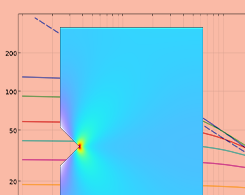
How Should I Evaluate Singular Stress Fields?
Explore the properties of singular stress fields and see some possible approaches for evaluating them in COMSOL Multiphysics®.
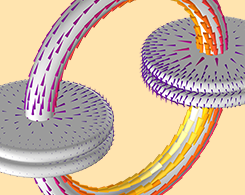
Learning from the Two-Capacitor Paradox: Do Capacitance and Inductance Exist?
What is the two-capacitor paradox? How can it be resolved with modeling and simulation? Do capacitance and inductance exist? Get answers here.
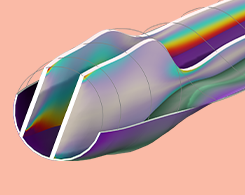
Introduction to the Composite Materials Module
Explore the Composite Materials Module, an add-on to COMSOL Multiphysics® that includes specialized functionality for modeling layered composite structures.
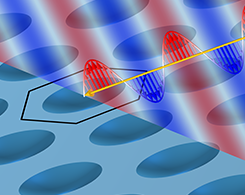
Understanding Higher-Order Diffraction
Explore how to use the Ewald sphere to study diffraction from planar periodic structures. (Interact directly with the model to get the full picture!)
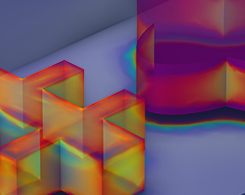
The Power of the Batch Sweep
Have you ever run a large parametric sweep on your workstation overnight, only to discover the next morning that the parametric solver is still not finished? Enter the batch sweep.
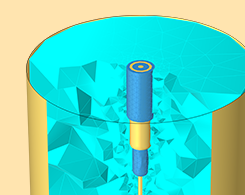
Understanding the Excitation Options for Modeling Electric Currents
Learn about the capabilities of COMSOL Multiphysics® for modeling frequency-domain electric currents in this in-depth guide.
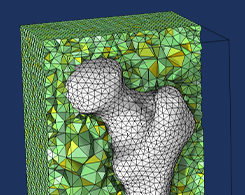
Generating a Simulation Mesh of a Femur From 3D Data
You can create a simulation mesh from 3D data in COMSOL Multiphysics®. This capability comes in handy when modeling irregular shapes.
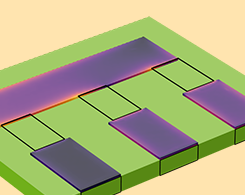
Combining Volumetric Conductor Models and Lumped Elements
With the AC/DC Module, it is possible to connect a full-fidelity volumetric conductor model to a lumped circuit element model. Learn how here.
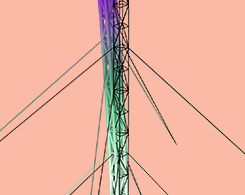
New Functionality for Buckling Analysis in COMSOL Multiphysics®
COMSOL Multiphysics® version 6.1 introduces functionality for handling a combination of fixed and varying loads in a buckling analysis. Get the details here.
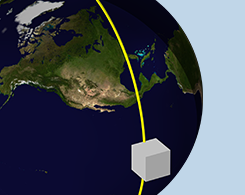
Computing Orbital Heat Loads with COMSOL Multiphysics®
As of version 6.1, the Heat Transfer Module includes a new interface for defining satellite orbit and orientation, orbital maneuvers, and varying planetary properties.
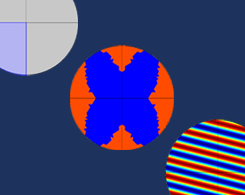
Using the Expression Operator in COMSOL Multiphysics®
What’s the difference between an expression operator and an analytic function? Find out in this blog post and see an example of an expression operator in action.
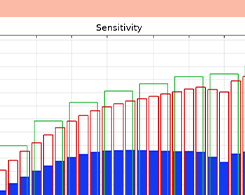
The Octave Band Plot for Acoustics Simulation
The Octave Band plot provides an easy and flexible way to represent any frequency response, transfer function, sensitivity curve, transmission loss, or insertion loss in your acoustics analyses.
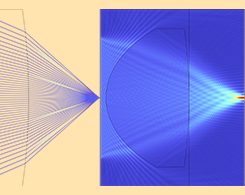
How to Use the New Spatial FFT Feature for Applications in Optics
COMSOL Multiphysics® version 6.0 includes the new Spatial FFT feature. Learn how this feature can be used in applications in optics here.
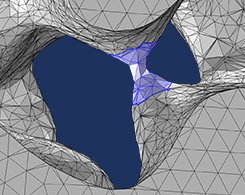
Editing and Repairing Imported Meshes in COMSOL Multiphysics®
COMSOL Multiphysics® includes several operations for modifying imported surface meshes. You can create, intersect, partition, and join entities, adapt and refine mesh elements, and more.
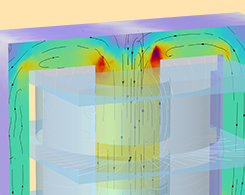
Computing Transformer Equivalent Circuit Parameters
The magnetizing and leakage inductances of a transformer can be found using an open-circuit test and a short-circuit test, respectively. Learn how to simulate these tests here.
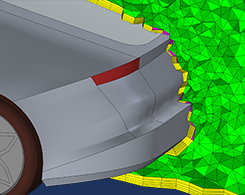
How to Inspect Your Mesh in COMSOL Multiphysics®
You’re meshing your model and a warning or error appears. So, what do you do? One option is to inspect the entities listed in the report to analyze and resolve the meshing issue.
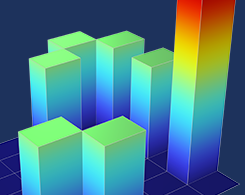
Getting the Stats: Computing Standard Deviations and Other Statistical Quantities
Here’s a comprehensive intro to computing and visualizing statistical quantities in COMSOL Multiphysics® .

How Large of a Model Can You Solve with COMSOL®?
Ever wonder how large of a model you can solve in COMSOL Multiphysics®? It depends on memory requirements, model size, and the dimension of your finite element problem.
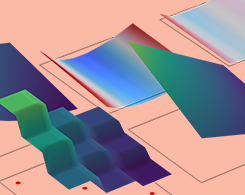
How to Evaluate Stresses in COMSOL Multiphysics®
Get a comprehensive introduction to evaluating various stress quantities in COMSOL Multiphysics®.
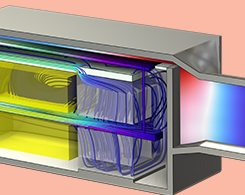
Modeling Speaker Drivers: Which Coupling Feature to Use
Explore how to model 4 different speaker drivers, including moving-coil transducers, balanced armature receivers, piezoelectric drivers, and electrostatic drivers.
